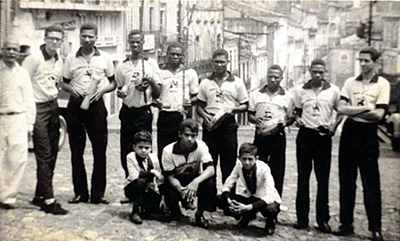When you live in the historical center of Salvador, sometimes you look out the window and see this:
The rhythm they are playing is called maracatu – it’s a folkloric performance from the state of Pernambuco.
There are two main forms: maracatu de nação (also called maracatu de baque virado) – the roots of this style trace back to the coronation ceremonies of the “Kings of Congo,” who were leaders among the communities of enslaved Africans in Brazil. The full version includes an orchestra of up to 100 people, singers, dancers, costumes, symbolic roles, and a doll called the calunga representing tribal deities.
The other form is called maracatu rural or maracatu de baque solto, which originated in the interior of Pernambuco in the early 20th century and is said to have Afro-indigenous roots.
There’s also a variation of maracatu de nação specific to Fortaleza, called maracatu cearense, which has a modified rhythm and orchestra. It’s distinctive for its use of blackface makeup, though this is intended to honor the African roots rather than express racism.
Maracatu is one of my favorite Brazilian rhythms 🙂


